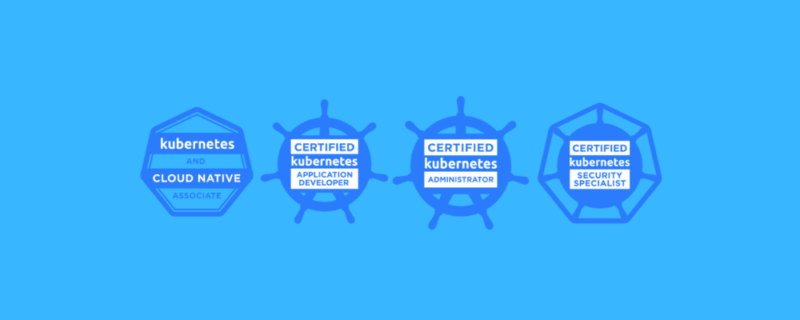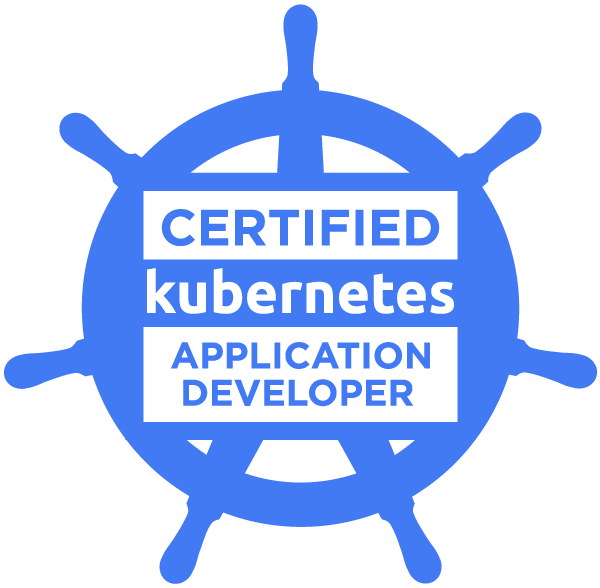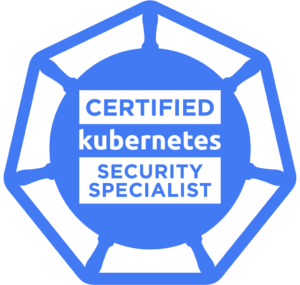Welcome to the comprehensive guide on Kubernetes Certification ! In this article, we will equip you with the knowledge and skills necessary to excel in Kubernetes and achieve certification. Kubernetes is a powerful container orchestration platform that has become a standard in modern application deployment.
Earning a Kubernetes certification not only validates your expertise but also opens up numerous career opportunities in the rapidly evolving tech industry.
What is Kubernetes ?
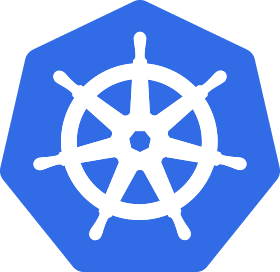
Kubernetes, also referred to as “kube” or “k8s,” is software that automatically manages, scales, and maintains multi-container workloads in desired states.
Modern software is increasingly run as fleets of containers, sometimes called microservices. A complete application may comprise many containers, all needing to work together in specific ways. Kubernetes is software that turns a collection of physical or virtual hosts (servers) into a platform that:
- Hosts containerized workloads, providing them with compute, storage, and network resources, and
- Automatically manages large numbers of containerized applications — keeping them healthy and available by adapting to changes and challenges
What is a Kubernetes certification?
A Kubernetes certification is a guided training course that teaches you specific aspects of how to use Kubernetes. At the end of the course, you complete an exam that certifies you as proficient in your curriculum. You can use your certification to demonstrate your skills to employers, co-workers, and partners.
The five main Kubernetes certifications, CKAD, CKA, CKS, KCNA, and KCSA, are offered by the Linux Foundation and were developed with the CNCF. The courses are recognized across the industry as a good indicator of professional competence in using and managing Kubernetes.
Should I get certified in Kubernetes?
Kubernetes certification is becoming increasingly valuable as more companies adopt containerized applications. It demonstrates your proficiency in working with Kubernetes and sets you apart in a competitive job market. Acquiring certification not only proves your technical skills but also shows your dedication to staying current with industry trends and best practices.
The Linux Foundation offers five primary Kubernetes certifications, namely CKAD, CKA, CKS, KCNA, and KCSA. These certifications were developed in collaboration with the CNCF and have gained widespread recognition throughout the industry. They serve as strong indicators of professional expertise in effectively utilizing and administering Kubernetes.
Types of Kubernetes Certification
Kubernetes offers diverse certification options, catering to three main roles commonly encountered in the industry:
- Using Kubernetes: These developer-oriented certifications center around tasks related to Kubernetes interaction and the deployment of applications within established clusters. If your primary focus involves working with pre-provisioned clusters, then the CKAD Certification is the recommended choice.
- Administering Kubernetes: The Administration certification places a strong emphasis on the operational facets of Kubernetes. This curriculum delves into topics such as cluster deployment, node management, environment configuration, and networking intricacies. If your role primarily revolves around overseeing the cluster’s infrastructure rather than the applications it hosts, the CKA Certification is the ideal choice for you.
- Securing Kubernetes: Kubernetes security specialists require additional skills to comprehend potential threats and implement effective mitigation strategies. Security certifications offer crucial training in fortifying clusters, mitigating container vulnerabilities, and securing the supply chain. For those specializing in Kubernetes security, the CKS certification is the optimal choice.
It’s best to start with the type of course that matches the role you want to work in. You can always complete additional courses to further enhance your skills.
Guide to Kubernetes Certifications
The three main CNCF-supported certifications are CKAD (Certified Kubernetes Application Developer), CKA (Certified Kubernetes Administrator), and CKS (Certified Kubernetes Security Specialist).
A fourth certification, KCNA (Kubernetes and Cloud Native Associate), provides conceptual knowledge about cloud-native applications. Later in 2023, another “associate” option will launch, KCSA (Kubernetes and Cloud Native Security Associate), which expands on KCNA with additional security content.
Certified Kubernetes Application Developer (CKAD)
The Certified Kubernetes Application Developer (CKAD) certification validates your expertise in creating and deploying applications on Kubernetes. Focusing on practical skills like Pod design, services, and persistent storage, the CKAD highlights your proficiency in container orchestration. This credential is perfect for developers and software engineers seeking to grow their career in the Kubernetes ecosystem.
$395 $316
- Upon registration, you have ONE YEAR to schedule and complete the exam.
- The CKA exam is conducted online and remotely proctored.
- To pass the exam, you must achieve a score of 66% or higher.
- The CKAD Certification remains valid for a period of 3 years.
- You are allowed a maximum of 2 attempts to take the test. However, if you miss a scheduled exam for any reason, your second attempt will be invalidated.
- Free access to killer.sh for the CKAD practice exam.
CKAD Exam Voucher: Use coupon Code TECK20 at checkout
What you should know about CKAD Exam :
| Exam Duration | 2 hours |
| Pass Percentage | 66% |
| CKAD Exam Kubernetes Version | Kubernetes v1.27 |
| CKAD Validity | 3 Years |
| Exam Cost | $395 USD |
This table presents CKAD syllabus which outlines the different domains and competencies you’ll need to master in order to pass the exam :
| Topic | Weightage |
|---|---|
| Application Design and Build | 20% |
| Application Environment, Configuration, and Security | 25% |
| Services & Networking | 20% |
| Application Deployment | 20% |
| Application Observability and Maintenance | 15% |
CKAD Exam Sample Question
CKAD EXAM QUESTION
# Create a Pod named nginx-ckad in the existing "teckbootcamps-namespace" namespace.
# Specify a single container using nginx:stable image.
# Specify a resource request of 400m cpus and 1G1 of memory for the Pod’s container.CKAD Exam Sample Solution
kubectl config use-context ckad-k8s
controlplane $ kubectl run nginx-ckad --image=nginx:stable --namespace=teckbootcamps-namespace --dry-run=client -o yaml > solution-ckad.yaml
vi solution-ckad.yamlChange the solution-ckad,yaml to add resources request ( cpu & memory )
apiVersion: v1
kind: Pod
metadata:
creationTimestamp: null
labels:
run: nginx-ckad
name: nginx-ckad
namespace: teckbootcamps-namespace
spec:
containers:
- image: nginx:stable
name: nginx-resources
resources:
requests:
cpu: 400m
memory: 1Gi
dnsPolicy: ClusterFirst
restartPolicy: Always
status: {}controlplane $ k apply -f solution-ckad.yaml
pod/nginx-ckad created
controlplane $ k get pods -n teckbootcamps-namespace
NAME READY STATUS RESTARTS AGE
nginx-ckad 1/1 Running 0 8sCheck our latest update CKAD Exam Study Guide here :
Certified Kubernetes Administrator (CKA)
The Certified Kubernetes Administrator (CKA) certification showcases your skills in managing Kubernetes clusters, focusing on installation, configuration, troubleshooting, and maintenance. Ideal for system administrators, DevOps engineers, and IT professionals, the CKA credential propels your career in the Kubernetes ecosystem and container orchestration domain.
$395 $316
- Upon registration, you have ONE YEAR to schedule and complete the exam.
- The CKA exam is conducted online and remotely proctored.
- To pass the exam, you must achieve a score of 66% or higher.
- The CKA Certification remains valid for a period of 3 years.
- You are allowed a maximum of 2 attempts to take the test. However, if you miss a scheduled exam for any reason, your second attempt will be invalidated.
- Free access to killer.sh for the CKA practice exam.
CKA Exam Voucher: Use coupon Code TECK20 at checkout
What you should know about CKA Exam :
| Exam Duration | 2 hrs |
| CKA passing score | 66 % |
| Exam Format | Online proctored |
| Number of questions | 15-20 performance-based tasks |
| Prerequisite | Nothing |
| Results | 24 Hours |
| Retry policy | 2 Attempts |
| Kubernetes Version ( since 15/05/2023) | See Curriculum v1.27 |
| CKA certification validity | 3 Years |
| CKA Certification Exam Cost | $395 |
This table presents CKA syllabus which outlines the different domains and competencies you’ll need to master in order to pass the exam :
| Topic | Weightage |
| Cluster Architecture, Installation & Configuration | 25% |
| Services & Networking | 20% |
| Troubleshooting | 30% |
| Workloads & Scheduling | 15% |
| Storage | 10% |
CKA Exam Sample Question
CKA EXAM QUESTION
# Make the node named "kube-node-3" as unavailable and reschedule all the pods running on it to another node.
CKA Exam Sample Solution
kubectl config use-context kube
kubectl drain kube-node-3 --ignore-daemonsets --delete-emptydir-data
kubectl get nodes
Check our latest updated CKA Exam Study Guide here :
Certified Kubernetes Security Specialist (CKS)
The Certified Kubernetes Security Specialist (CKS) certification is a specialized credential for professionals focused on securing Kubernetes clusters.
This certification highlights your expertise in implementing robust security measures, hardening clusters, and managing access control. Ideal for security analysts, DevSecOps engineers, and other security-conscious roles, the CKS showcases your commitment to safeguarding Kubernetes environments and enhancing security within the container orchestration landscape.
$395 $316
- Upon registration, you have ONE YEAR to schedule and complete the exam.
- The CKA exam is conducted online and remotely proctored.
- To pass the exam, you must achieve a score of 67% or higher.
- The CKS Certification remains valid for a period of 2 years.
- You are allowed a maximum of 2 attempts to take the test. However, if you miss a scheduled exam for any reason, your second attempt will be invalidated.
- Free access to killer.sh for the CKS practice exam.
CKS Exam Voucher: Use coupon Code TECK20 at checkout
What you should know about CKS Exam :
| Exam Duration | 2 hrs |
| Pass Percentage | 67% |
| Exam Format | Online proctored |
| Number of questions | 15-20 performance-based tasks |
| Prerequisite | CKA Certification |
| Results | 24 Hours |
| Retry policy | 2 Attempts |
| Kubernetes Version ( since 05/2023) | v1.27 |
| CKS Validity | 2 Years |
| CKS Certification Exam Cost | $395 |
This table presents CKS syllabus which outlines the different domains and competencies you’ll need to master in order to pass the exam :
| Domain | Weight |
|---|---|
| Cluster Setup | 10% |
| Cluster Hardening | 15% |
| System Hardening | 15% |
| Minimize Microservice Vulnerabilities | 20% |
| Supply Chain Security | 20% |
| Monitoring, Logging, and Runtime Security | 20% |
CKS Exam Sample Question
CKS EXAM QUESTION
# Enable Audit logs for the Kubernetes API server of your cluster.
# There is an existing configuration file stored in your master node at /etc/kubernetes/audit/policy.yaml.
# Add a policy to the configuration so that audit logs contain metadata for all resources. Additionally, it should log the request body for configmap resources.
# Change the configuration of the Kube API Server to enable audit logging using the policy configuration created above. Write logs to the path /var/log/audit/audit.log.CKS Exam Sample Solution
# The first part of the task is to configure the audit policy so that audit logs will contain metadata of all requests and request body of requests to config. We can accomplish this using this policy configuration:
###### STEP 1 : Kubernetes audit log configuration file ######
# /etc/kubernetes/audit/policy.yaml
# Log all requests at the Metadata level.
apiVersion: audit.k8s.io/v1
kind: Policy
rules:
- level: Metadata
# Log configmap and secret changes in all other namespaces at the Metadata level.
- level: Request
resources:
- group: ""
resources: ["configmaps"]
###### STEP 2 : Configure Kube API server for audit logs ######
#The second step of the task is to configure the Pod for the Kubernetes API server. You can change the API server’s configuration by editing its manifest. Usually, it is stored at /etc/kubernetes/manifests/kube-api-server.yaml on the master nodes.
#We need to:
# + Configure the log path
# +Configure the path to the audit policy configuration file
# +Mount the audit policy to the Kube API server
# +Mount the logs directory
# First, add the following additional arguments:
--audit-policy-file=/etc/kubernetes/audit/policy.yaml
--audit-log-path=/var/log/audit/audit.log
# Then add volumes to the pod description:
volumes:
- hostPath:
path: /var/log/audit
type: DirectoryOrCreate
name: audit-logs
- hostPath:
path: /etc/kubernetes/audit/policy.yaml
type: File
# Next, add the volumeMounts and apply the new configuration:
volumeMounts:
- mountPath: /var/log/audit
name: audit-logs
readOnly: false
- mountPath: /etc/kubernetes/audit/policy.yaml
name: audit-policy
readonly: true
# Congrats, you activated the audit logs for your Kubernetes API Server.
# You can check that logs are written by running the following on your node:
cat /var/log/audit/audit.log
Check our latest update CKS Exam Study Guide here :
Kubernetes and Cloud-Native Associate (KCNA)
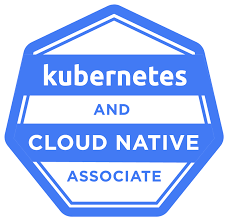
The KCNA certification exam represents a slightly different approach to Kubernetes certification. It serves as a foundational course designed to assist aspiring candidates in enhancing their understanding of Kubernetes.
While CKAD, CKA, and CKS certifications specifically concentrate on Kubernetes, KCNA offers a more comprehensive curriculum. Kubernetes still constitutes a significant portion (almost half) of the subject matter. However, 20% is dedicated to fundamental concepts surrounding container orchestration, explaining its significance, and illustrating the relationships between its various components.
The remainder of the content delves into essential cloud-native principles, such as autoscaling and serverless computing, as well as the methods for implementing observability in your applications using Prometheus. The final segment explores the deployment of cloud-native applications, encompassing topics like CI/CD pipelines and GitOps solutions.
Achieving KCNA certification involves passing a 90-minute exam comprising multiple-choice questions, with a fee of $250. This course is a valuable choice if you’re entering the DevOps or cloud engineering field or seeking to complement your existing knowledge with a well-rounded grasp of the cloud-native ecosystem. It serves as an excellent precursor to pursuing CKAD or CKA certifications.
KCNA Exam Sample Question
You might need to run a stateless application in kubernetes, and you want to be able to scale easily and perform rolling updates. What kubernetes resource type can you use to do this
* Replica set
* Pod
* Dameon set
* Deployement (Correct Answer)
* Service
* StatefulSetsTo gain a better understanding of the exam questions, consider reviewing a sample of the KCNA certification multiple-choice questions (QCM).
Kubernetes and Cloud Native Security Associate (KCSA)

The upcoming KCSA certification is meticulously crafted to offer in-depth insights into the security prerequisites essential for the secure utilization of cloud-native infrastructure and Kubernetes clusters. Its comprehensive modules encompass critical subjects such as the 4C security model, the various threats that can impact different components of Kubernetes, and effective methods for fortifying your environment, including audit logging, network policies, and Pod Security Admission rules.
It’s important to note that KCSA will not be widely accessible until the third quarter of 2023. However, a limited-access beta version is currently available for early participation. Successfully completing this beta program and meeting its qualification requirements will grant you the esteemed KCSA certification badge once the full course becomes officially available.
Find Your Perfect Kubernetes Certification Match
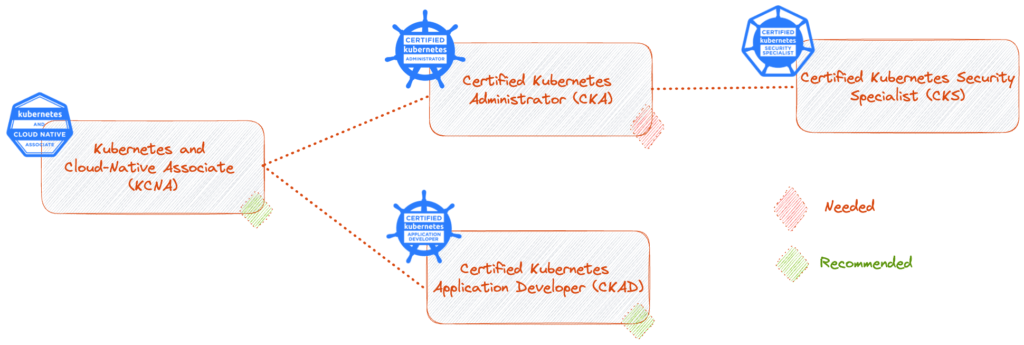
The Developer Path: CKAD
If you’re an application developer or aspiring to become one, the Developer Path is your best bet.
- KCNA: Ideal for a junior developer looking to understand the basics of Kubernetes and cloud-native technologies. This certification lays the groundwork for your Kubernetes journey and prepares you for the CKAD.
- CKAD: This certification is perfect for various roles, such as:
- Software Engineer working on microservices: The CKAD will help you elevate your skills in deploying and maintaining Kubernetes applications.
- Full-stack Developer: CKAD will provide you with the necessary skills to integrate Kubernetes into your development workflow, ensuring smooth deployment and scaling of your applications.
- Freelance Developer: As a freelance developer working with clients who have adopted Kubernetes, the CKAD certification will boost your credibility and showcase your expertise in the field.
The Administrator Path: CKA and CKS
If you’re a system administrator, DevOps engineer, or security expert, the Administrator Path is your ideal choice.
- KCNA: Start by obtaining the KCNA certification to build a strong foundation in Kubernetes and cloud-native technologies. This certification is suitable for IT professionals transitioning to cloud-native technologies or those interested in gaining a basic understanding of Kubernetes.
- CKA: Pursue the CKA certification to demonstrate your expertise in Kubernetes cluster management. This certification is well-suited for the following roles:
- System Administrator: Validate your ability to manage and troubleshoot Kubernetes clusters, making you a valuable asset in your organization.
- DevOps Engineer: Showcase your expertise in deploying and scaling containerized applications using Kubernetes, streamlining the CI/CD process.
- CKS: Complete your Administrator Path with the CKS certification, which covers critical topics such as cluster hardening, securing network communication, and managing access control. This certification is ideal for:
- Security Analyst: Ensuring the safety of a company’s Kubernetes clusters will benefit from the CKS certification for implementing robust security measures.
- DevSecOps Engineer: Validate your ability to integrate security best practices into Kubernetes deployments, ensuring compliance and risk mitigation for your organization.
Please note that you must pass the CKA certification before attempting the CKS certification.
Preparing for Kubernetes certifications
To excel in your selected certification path, you can:
- Dive into Kubernetes documentation and official resources
- Sign up for online courses or attend instructor-led training sessions
- Join Kubernetes communities, webinars, meetups, and workshops
- Gain hands-on experience through real-world projects or contributing to open-source initiatives
In order to provide you with comprehensive resources for your Kubernetes certification journey, I have written three in-depth articles that cover detailed exam reviews for the main Kubernetes certifications: Certified Kubernetes Application Developer (CKAD), Certified Kubernetes Administrator (CKA), and Certified Kubernetes Security Specialist (CKS).
Each article delves into the crucial subjects to prepare, certification details, and insider tips to ace the exams, ensuring that you have all the necessary information and guidance at your fingertips. These articles have been crafted with the intent to equip you with the knowledge, strategies, and confidence needed to successfully obtain your desired Kubernetes certification and excel in your professional career.
🔥 [20% Off] Linux Foundation Coupon for 2023 DevOps & Kubernetes Exam Sale [Current Offer]
Save 20% on all the Linux Foundation training and certification programs. This is a limited-time offer for this month. This offer is applicable for CKA, CKAD, CKS, KCNA, LFCS, PCA FINOPS, NodeJS, CHFA, and all the other certification, training, and BootCamp programs.
$395 $316
- Upon registration, you have ONE YEAR to schedule and complete the exam.
- The CKA exam is conducted online and remotely proctored.
- To pass the exam, you must achieve a score of 66% or higher.
- The CKAD Certification remains valid for a period of 3 years.
- You are allowed a maximum of 2 attempts to take the test. However, if you miss a scheduled exam for any reason, your second attempt will be invalidated.
- Free access to killer.sh for the CKAD practice exam.
CKAD Exam Voucher: Use coupon Code TECK20 at checkout
$395 $316
- Upon registration, you have ONE YEAR to schedule and complete the exam.
- The CKA exam is conducted online and remotely proctored.
- To pass the exam, you must achieve a score of 66% or higher.
- The CKA Certification remains valid for a period of 3 years.
- You are allowed a maximum of 2 attempts to take the test. However, if you miss a scheduled exam for any reason, your second attempt will be invalidated.
- Free access to killer.sh for the CKA practice exam.
CKA Exam Voucher: Use coupon Code TECK20 at checkout
$395 $316
- Upon registration, you have ONE YEAR to schedule and complete the exam.
- The CKA exam is conducted online and remotely proctored.
- To pass the exam, you must achieve a score of 67% or higher.
- The CKS Certification remains valid for a period of 2 years.
- You are allowed a maximum of 2 attempts to take the test. However, if you miss a scheduled exam for any reason, your second attempt will be invalidated.
- Free access to killer.sh for the CKS practice exam.
CKS Exam Voucher: Use coupon Code TECK20 at checkout
Conclusion
Choosing the ideal Kubernetes certification path either Developer (CKAD) or Administrator (CKAD and further CKS) depends on your background, career aspirations, and desired role within the Kubernetes ecosystem.
By understanding the various certifications, evaluating your skills, and preparing thoroughly, you can boost your career prospects and become a valuable asset in the exciting world of container orchestration.
Be sure to visit the latest Linux Foundation Coupon Code page to avail of special offers when purchasing the CKAD, CKA, or CKS exams.
